Tabinda Sarwar
Deep Contrastive Unlearning for Language Models
Mar 19, 2025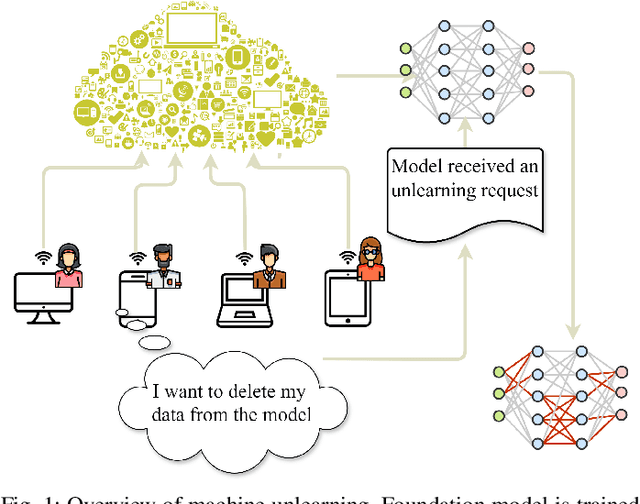


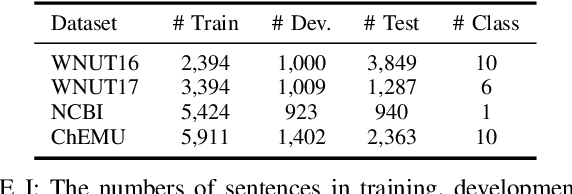
Abstract:The past a few years have witnessed the great success of large language models, demonstrating powerful capabilities in comprehending textual data and generating human-like languages. Large language models achieve success by being trained on vast amounts of textual data, including online sources with copyrighted content and user-generated knowledge. However, this comes at a cost: the potential risk of exposing users' privacy and violating copyright protections. Thus, to safeguard individuals' "right to be forgotten", there has been increasing interests in machine unlearning -- the process of removing information carried by particular training samples from a model while not deteriorating its predictive quality. This is a challenging task due to the black-box nature of language models. Most existing studies focus on mitigating the impact of those forgot samples upon a model's outputs, and do not explicitly consider the geometric distributions of samples in the latent space of a model. To address this issue, we propose a machine unlearning framework, named Deep Contrastive Unlearning for fine-Tuning (DeepCUT) language models. Our proposed model achieves machine unlearning by directly optimizing the latent space of a model. Comprehensive experiments on real-world datasets demonstrate the effectiveness and efficiency of DeepCUT with consistent and significant improvement over baseline methods.
Assessing the Impact of the Quality of Textual Data on Feature Representation and Machine Learning Models
Feb 12, 2025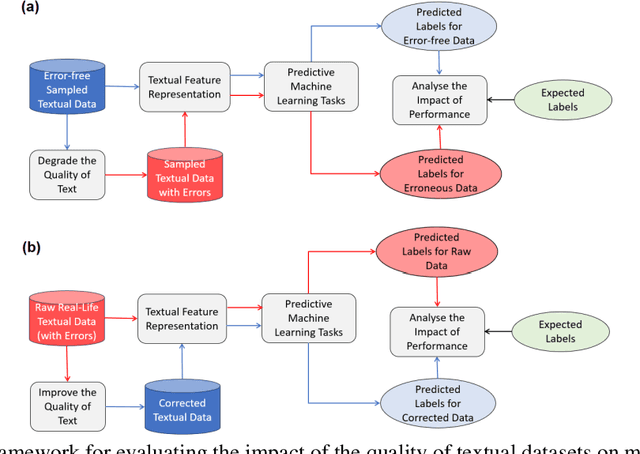
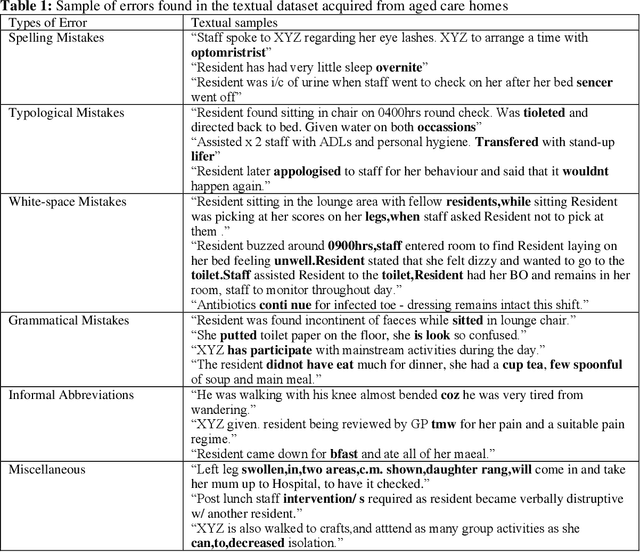
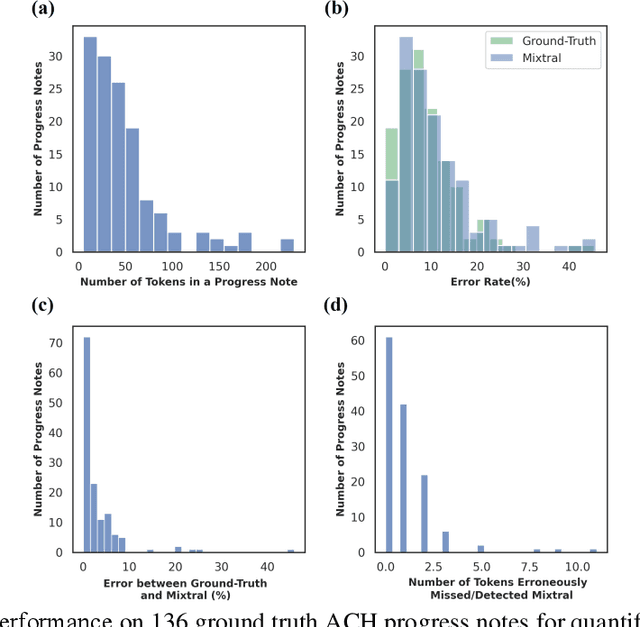
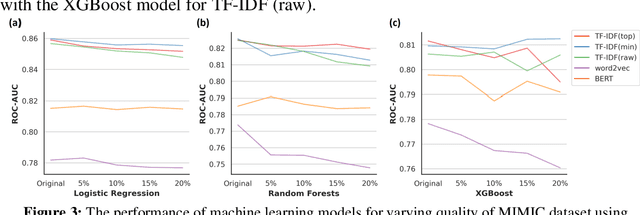
Abstract:Background: Data collected in controlled settings typically results in high-quality datasets. However, in real-world applications, the quality of data collection is often compromised. It is well established that the quality of a dataset significantly impacts the performance of machine learning models. Methods: A rudimentary error rate metric was developed to evaluate textual dataset quality at the token level. Mixtral Large Language Model (LLM) was used to quantify and correct errors in low quality datasets. The study analyzed two healthcare datasets: the high-quality MIMIC-III public hospital dataset and a lower-quality private dataset from Australian aged care homes. Errors were systematically introduced into MIMIC at varying rates, while the ACH dataset quality was improved using the LLM. Results: For the sampled 35,774 and 6,336 patients from the MIMIC and ACH datasets respectively, we used Mixtral to introduce errors in MIMIC and correct errors in ACH. Mixtral correctly detected errors in 63% of progress notes, with 17% containing a single token misclassified due to medical terminology. LLMs demonstrated potential for improving progress note quality by addressing various errors. Under varying error rates, feature representation performance was tolerant to lower error rates (<10%) but declined significantly at higher rates. Conclusions: The study revealed that models performed relatively well on datasets with lower error rates (<10%), but their performance declined significantly as error rates increased (>=10%). Therefore, it is crucial to evaluate the quality of a dataset before utilizing it for machine learning tasks. For datasets with higher error rates, implementing corrective measures is essential to ensure the reliability and effectiveness of machine learning models.
Long-range Brain Graph Transformer
Jan 02, 2025Abstract:Understanding communication and information processing among brain regions of interest (ROIs) is highly dependent on long-range connectivity, which plays a crucial role in facilitating diverse functional neural integration across the entire brain. However, previous studies generally focused on the short-range dependencies within brain networks while neglecting the long-range dependencies, limiting an integrated understanding of brain-wide communication. To address this limitation, we propose Adaptive Long-range aware TransformER (ALTER), a brain graph transformer to capture long-range dependencies between brain ROIs utilizing biased random walk. Specifically, we present a novel long-range aware strategy to explicitly capture long-range dependencies between brain ROIs. By guiding the walker towards the next hop with higher correlation value, our strategy simulates the real-world brain-wide communication. Furthermore, by employing the transformer framework, ALERT adaptively integrates both short- and long-range dependencies between brain ROIs, enabling an integrated understanding of multi-level communication across the entire brain. Extensive experiments on ABIDE and ADNI datasets demonstrate that ALTER consistently outperforms generalized state-of-the-art graph learning methods (including SAN, Graphormer, GraphTrans, and LRGNN) and other graph learning based brain network analysis methods (including FBNETGEN, BrainNetGNN, BrainGNN, and BrainNETTF) in neurological disease diagnosis. Cases of long-range dependencies are also presented to further illustrate the effectiveness of ALTER. The implementation is available at \url{https://github.com/yushuowiki/ALTER}.
Sample-Efficient, Exploration-Based Policy Optimisation for Routing Problems
May 31, 2022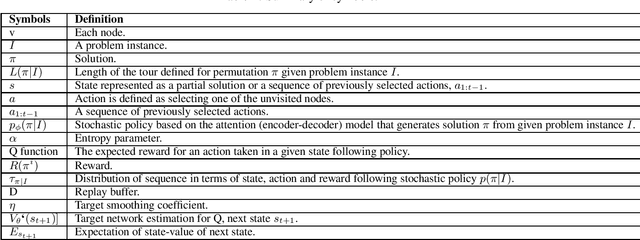
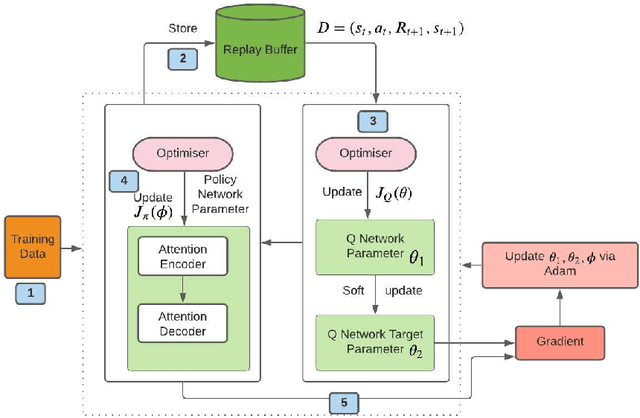
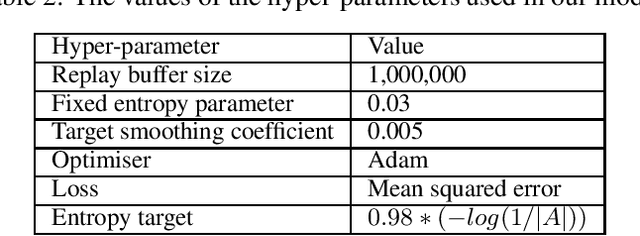
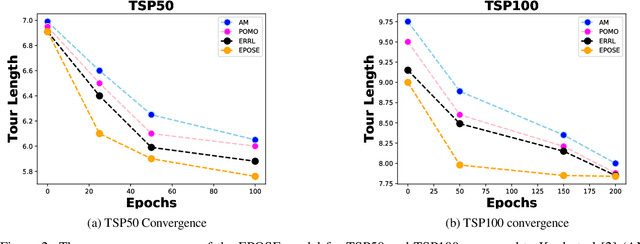
Abstract:Model-free deep-reinforcement-based learning algorithms have been applied to a range of COPs~\cite{bello2016neural}~\cite{kool2018attention}~\cite{nazari2018reinforcement}. However, these approaches suffer from two key challenges when applied to combinatorial problems: insufficient exploration and the requirement of many training examples of the search space to achieve reasonable performance. Combinatorial optimisation can be complex, characterised by search spaces with many optimas and large spaces to search and learn. Therefore, a new method is needed to find good solutions that are more efficient by being more sample efficient. This paper presents a new reinforcement learning approach that is based on entropy. In addition, we design an off-policy-based reinforcement learning technique that maximises the expected return and improves the sample efficiency to achieve faster learning during training time. We systematically evaluate our approach on a range of route optimisation tasks typically used to evaluate learning-based optimisation, such as the such as the Travelling Salesman problems (TSP), Capacitated Vehicle Routing Problem (CVRP). In this paper, we show that our model can generalise to various route problems, such as the split-delivery VRP (SDVRP), and compare the performance of our method with that of current state-of-the-art approaches. The Empirical results show that the proposed method can improve on state-of-the-art methods in terms of solution quality and computation time and generalise to problems of different sizes.
Learning Enhanced Optimisation for Routing Problems
Sep 17, 2021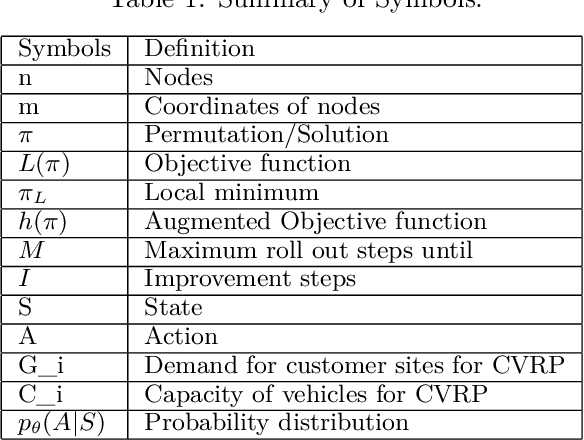


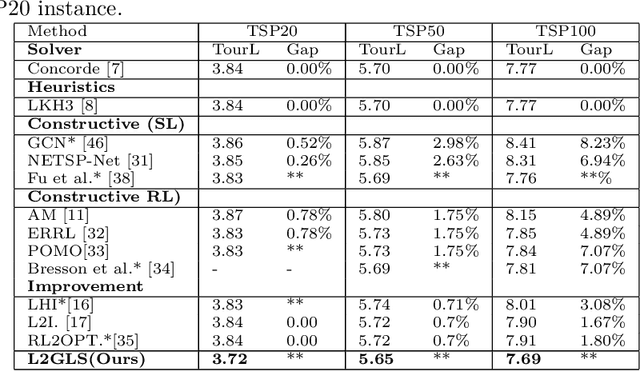
Abstract:Deep learning approaches have shown promising results in solving routing problems. However, there is still a substantial gap in solution quality between machine learning and operations research algorithms. Recently, another line of research has been introduced that fuses the strengths of machine learning and operational research algorithms. In particular, search perturbation operators have been used to improve the solution. Nevertheless, using the perturbation may not guarantee a quality solution. This paper presents "Learning to Guide Local Search" (L2GLS), a learning-based approach for routing problems that uses a penalty term and reinforcement learning to adaptively adjust search efforts. L2GLS combines local search (LS) operators' strengths with penalty terms to escape local optimals. Routing problems have many practical applications, often presetting larger instances that are still challenging for many existing algorithms introduced in the learning to optimise field. We show that L2GLS achieves the new state-of-the-art results on larger TSP and CVRP over other machine learning methods.
Learning Vehicle Routing Problems using Policy Optimisation
Dec 24, 2020
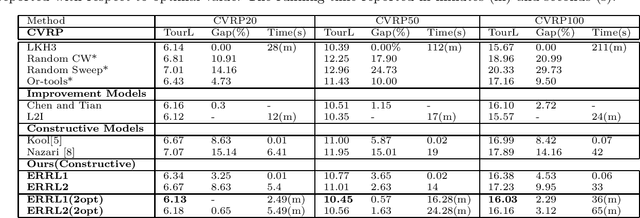
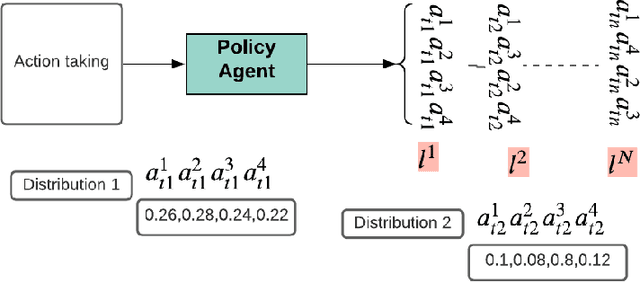

Abstract:Deep reinforcement learning (DRL) has been used to learn effective heuristics for solving complex combinatorial optimisation problem via policy networks and have demonstrated promising performance. Existing works have focused on solving (vehicle) routing problems as they have a nice balance between non-triviality and difficulty. State-of-the-art approaches learn a policy using reinforcement learning, and the learnt policy acts as a pseudo solver. These approaches have demonstrated good performance in some cases, but given the large search space typical combinatorial/routing problem, they can converge too quickly to poor policy. To prevent this, in this paper, we propose an approach name entropy regularised reinforcement learning (ERRL) that supports exploration by providing more stochastic policies, which tends to improve optimisation. Empirically, the low variance ERRL offers RL training fast and stable. We also introduce a combination of local search operators during test time, which significantly improves solution and complement ERRL. We qualitatively demonstrate that for vehicle routing problems, a policy with higher entropy can make the optimisation landscape smooth which makes it easier to optimise. The quantitative evaluation shows that the performance of the model is comparable with the state-of-the-art variants. In our evaluation, we experimentally illustrate that the model produces state-of-the-art performance on variants of Vehicle Routing problems such as Capacitated Vehicle Routing Problem (CVRP), Multiple Routing with Fixed Fleet Problems (MRPFF) and Travelling Salesman problem.
Learning to Optimise General TSP Instances
Nov 03, 2020
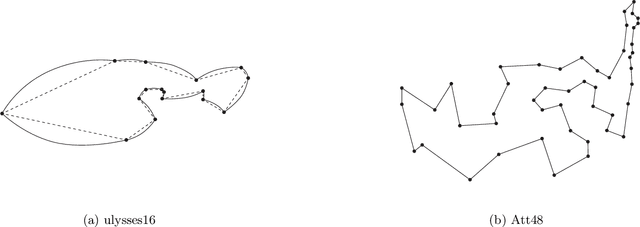
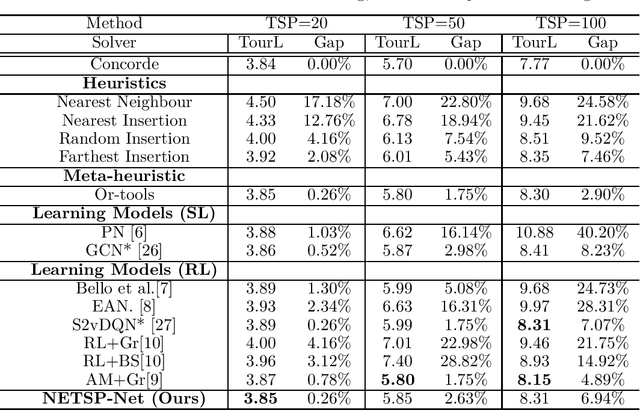

Abstract:The Travelling Salesman Problem (TSP) is a classical combinatorial optimisation problem. Deep learning has been successfully extended to meta-learning, where previous solving efforts assist in learning how to optimise future optimisation instances. In recent years, learning to optimise approaches have shown success in solving TSP problems. However, they focus on one type of TSP problem, namely ones where the points are uniformly distributed in Euclidean spaces and have issues in generalising to other embedding spaces, e.g., spherical distance spaces, and to TSP instances where the points are distributed in a non-uniform manner. An aim of learning to optimise is to train once and solve across a broad spectrum of (TSP) problems. Although supervised learning approaches have shown to achieve more optimal solutions than unsupervised approaches, they do require the generation of training data and running a solver to obtain solutions to learn from, which can be time-consuming and difficult to find reasonable solutions for harder TSP instances. Hence this paper introduces a new learning-based approach to solve a variety of different and common TSP problems that are trained on easier instances which are faster to train and are easier to obtain better solutions. We name this approach the non-Euclidean TSP network (NETSP-Net). The approach is evaluated on various TSP instances using the benchmark TSPLIB dataset and popular instance generator used in the literature. We performed extensive experiments that indicate our approach generalises across many types of instances and scales to instances that are larger than what was used during training.
 Add to Chrome
Add to Chrome Add to Firefox
Add to Firefox Add to Edge
Add to Edge